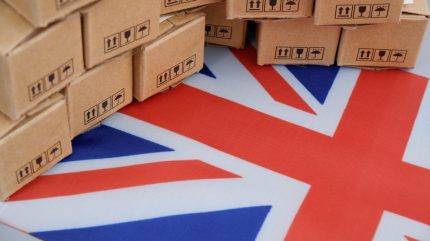
As the UK anticipates the Autumn Budget announcement from Chancellor Rachel Reeves, stakeholders across the packaging industry are weighing in on potential changes that could impact their sector.
Key areas of speculation include tax adjustments, sustainable incentives, and initiatives to drive recycling—a pressing issue as the government grapples with economic constraints and environmental commitments.
Tax increases and recycling incentives
Given the Labour government’s promises to address environmental sustainability, packaging leaders expect increased investment in recycling and waste management infrastructure.
Tim Hanford, an economist at Packaging News, suggested that “the government’s focus on a circular economy might mean greater incentives for companies adopting sustainable practices.”
Hanford believes that tax reliefs or grants for recyclability initiatives could be on the table, but he warns that smaller companies in the sector may struggle with compliance if these requirements intensify.
Moreover, industry voices are voicing concern over a possible hike in capital gains tax (CGT). Under the expected changes, CGT rates could increase or align more closely with income tax rates, raising costs for packaging firms relying on asset sales.
Packaging firms are also anticipating changes to the business asset disposal relief, which could further limit tax efficiencies on the sale of business assets.
According to an analysis from MHA, capital gains tax reform “could add significant financial strain” for businesses looking to make strategic asset reallocations, a common practice within the capital-intensive packaging industry.
Corporation tax and e-invoicing
The corporation tax rate, capped at 25% since April, will likely stay steady for now.
However, Reeves has hinted at exploring e-invoicing as a measure to improve efficiency and transparency in VAT collection, which would affect many in the packaging sector.
Joe McAllister, a financial advisor for the industry, sees both potential benefits and burdens with e-invoicing, noting that “for larger firms, e-invoicing can streamline processes, but smaller operators may need government support to adapt to these technological shifts.”
A pivotal moment for sustainable packaging
The packaging industry awaits clarity on whether the Autumn Budget will include new initiatives to combat single-use plastics.
The previous government’s Plastic Packaging Tax (PPT) has spurred innovation in recyclable and compostable packaging. However, industry insiders say more is needed to meet ambitious environmental goals.
A forecast from GoForma suggests that Labour may enhance the PPT by tightening the threshold or increasing the tax rate on non-recycled materials, placing further emphasis on biodegradable alternatives.
Andrew McCarthy, a sustainability consultant, remarked, “We need clarity on extended producer responsibility (EPR) reforms. Any support for recycled content could spur demand for sustainable materials.”
With the anticipated budget constraints, however, the government may tread cautiously, balancing environmental targets with economic realities.
This Budget could redefine tax and sustainability standards in packaging
While the specifics of the Autumn Budget 2024 remain uncertain, the Labour government’s pledges on sustainability and economic responsibility point towards key shifts in tax policy and green initiatives.
Packaging companies are bracing for changes that could reshape operational strategies and cost structures, especially if the government introduces stricter incentives or penalties around recyclability.
Ultimately, the industry remains hopeful that support for sustainable practices will outweigh potential financial impacts, signalling a path toward a greener and more efficient packaging sector.
This Budget could mark a pivotal turning point in both tax reform and sustainability commitments within the UK’s packaging industry.



